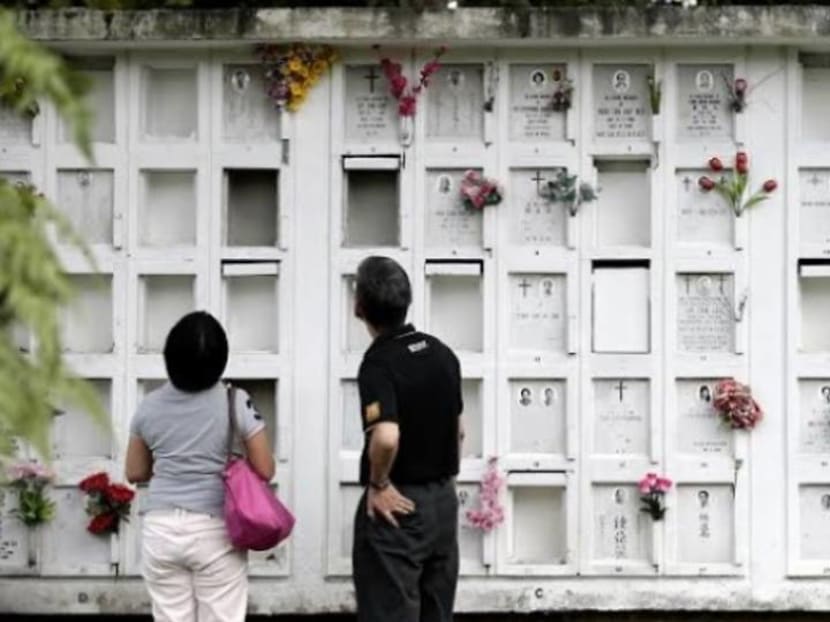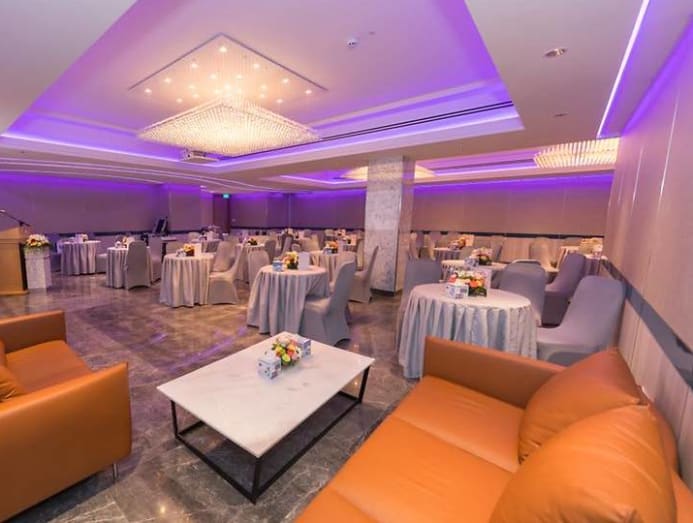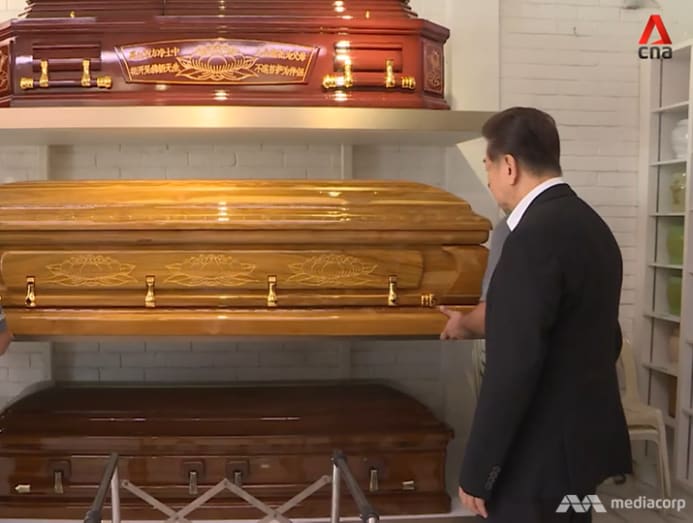commentary Commentary
Commentary: A pre-planned funeral is the last gift we can leave for our loved ones
Talk of death and funerals may be morbid in our culture but they go a long way in helping our loved ones cope, says funeral services professional Ang Ziqian.

Relatives at a funeral parlour. (Photo: Jason Quah/TODAY)
SINGAPORE: “Nothing is certain except death and taxes”, historic US political leader Benjamin Franklin famously said. A good tax accountant could help you avoid taxes, but death is a certainty no one can avoid.
Despite its certainty, few of us talk about death because of the psychological pain that comes with it. It is a natural human response to avoid pain, which makes us want to avoid the topic of dying, death, funerals and funeral planning.
These are taboo topics in most family discussions, but there is a serious need to overcome this reluctance.
READ: Commentary: We treat the business of death like it’s dirty work
Discussions on death and funerals help us to be informed and to make proper life and after life choices so that we leave behind love, not regrets. If sex education can be taught in school, why not death literacy?
Helping us talk about dying, discussing how one would prefer to be sent-off and what the mourning process could look like is important. And not just because it is a matter of life and death. There are many implications too.
UNTIL DEATH DO US APART
First, many of us underestimate the tremendous pressure and responsibilities our loved ones come under when we pass on and this starts from the moment one takes their last breath.
Planning for a loved one’s funeral, for instance, can be quite daunting and, at times, even destructive to the lives of the people you leave behind.
READ: The Big Read: The funeral industry may have overhauled its image, but it faces new problems
One of the funeral cases I handled was of a mother who wanted to discuss her ideal funeral arrangements with her son, who was in his late 40s.
Unfortunately, fearing it would be an awkward conversation, he brushed off the topic on every occasion. When she finally passed away, he came to me and chose the best option he thought of.
But a couple of weeks after the funeral, he appeared at my office. As we spoke, he began sobbing uncontrollably. The question that kept playing in his mind: Did I do what my mother wanted?
He remembered all the times his mother had tried to talk to him about it. His guilt at brushing her off became too much to bear.
In another case I managed, the deceased’s three children practised different faiths. Each sibling felt that their father should be sent off based on their respective faith’s practices.

As their father lay on the living room floor after suffering a fatal cardiac arrest, his kids bickered over in which of their chosen ways his funeral should be held.
It came to a standstill and so I could not bring the deceased to our care centre to prepare for the funeral. It was six painful hours of managing the conflict among the siblings as they argued over issues such as which columbarium to select and what type of funeral rites to adopt.
As much as I wanted to resolve this deadlock and give the deceased a respectful send off, it was also hard to witness how an important undiscussed topic could tear a family apart. In this case, the lack of pre-planning simply added to their grief.
MAKING IT EASIER TO GRIEVE
Conversely, when families have discussed this issue and pre-plan the funeral, it is clear they get closure from being able to carry out their loved ones’ last wishes, up to every small detail.
READ: Commentary: Why crowds will keep heading to the cemeteries and columbaria during Qing Ming
READ: Commentary: Being with my father until the end was painful but made the loss less jarring
How the funeral expenses are apportioned among the children, whether one opts for burial or cremation, the benefits of embalming and the number of wake days are common discussion points families can have.
And when families have these discussions, there is a sense of fulfilment from being able to carry out the wishes of their deceased loved one.
Grieving is normal, there is no set period for a person to grieve but not being able to do so completely or effectively can have adverse consequences for the lives of those left behind.
It is already difficult to accept and cope with the loss of a loved one but having unnecessary stresses in the days after the person’s death can make grieving a lot more difficult.

Research has also shown that the inability to grieve properly affects us in our daily lives like at workplaces and within our social circles.
Moreover, there is an unexplored and undocumented cost of bereavement grief for the state to pay when we cannot grieve well. These include mental health issues as well as lowered productivity at work.
Do your loved ones a favour then – give them the scaffolding for grieving when your time comes. In an already emotional time, certainty can help because they can latch onto it.
READ: Commentary: This 71-year-old wants you to get a COVID-19 vaccine once you can. Here’s why
A conversation like transforming your cremated remains into memorial diamonds, number of days for the wake, which religious ritual to perform, who to contact, and so on can be discussed with a funeral director.
GETTING IT RIGHT
Recognising the fact that death is the finality of life helps us to think of it in less morbid and in perhaps more practical, yet philosophical, terms. Death is an end to a physical life but it is not an end to the relationships we leave behind, which we will want to ensure remain cherished even after we are long gone.
We create wills to bequeath wealth to our loved ones to ensure that they will be financially comfortable after our passing or that it goes to the rightful heir.

We buy life and term insurance policies to help our families cope with our financial loss after we pass on. So why not talk about and prepare for our actual ending – how we want to go and what our loved ones should do, so that they are not left second guessing?
In fact, I would say, where we take such pain to ensure the financial sustainability of our families and loved ones when we are around, why not even pre-plan and provide for the costs of one’s own funeral before our time is up?
Funerals, if not budgeted for, are an extra burden to any household expense and you would be doing your families a huge favour by planning and saving for them.
Ang Ziqian is managing director of Ang Chin Moh Funeral Directors and the founder of the Ang Chin Moh Foundation.





